How to treat pepper from aphids?
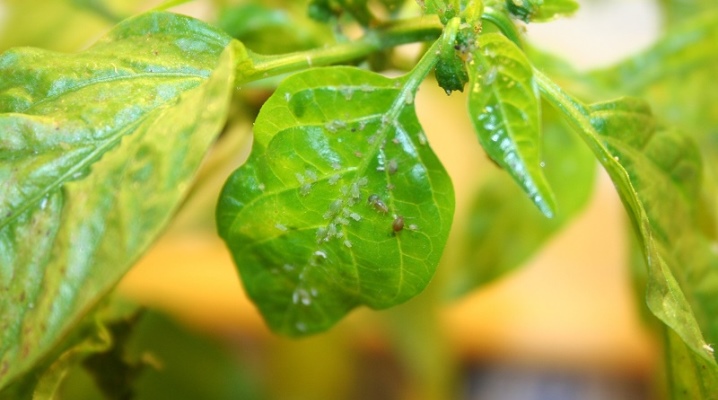
The appearance of aphids in the garden is associated with great trouble, since it is able to stop the growth of plants, the development of fruits. In bell peppers, the pest is attracted by the nutritious juice. It is important to know how to process the pepper for the final disposal of aphids.
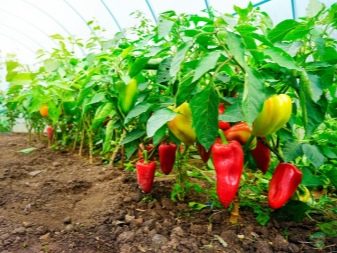
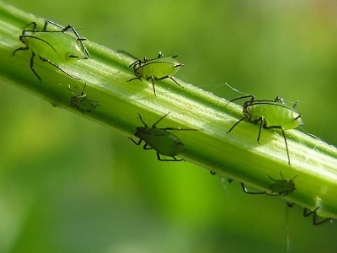
Signs of appearance
Aphids are small garden pests that live in large colonies. Insects feed on plant sap, this slows down their growth, significantly reduces productivity. If you do not fight the pest, the plant may die. Aphids are a carrier of viruses and diseases among plants, so they must always be destroyed when found. Often, harmful insects organize colonies on bell peppers. These vegetables are 80% water, which makes them very attractive to aphids.
There are 4000 species of this pest, but only 1000 species are found in the European part of our country. For garden plants, 2 species are dangerous, since they have wings, are able to move, have resistance to many toxic substances, and settle on many garden and garden crops, houseplants. it green and black or indoor aphids, they are dangerous to bell peppers.
Green aphids attack peppers during flowering in late spring. During the summer, the female reproduces several times. Insects are green in color, so they are difficult to spot right away. Aphids on the pepper are kept in the place of attachment of the leaf to the stem.
Signs of the appearance of green aphids:
- malformed buds;
- deformed shoots;
- folding of leaves;
- white bloom;
- weak twisted stem;
- thin leaves.
With an increase in the colony of aphids, it becomes more noticeable, the signs of damage increase.
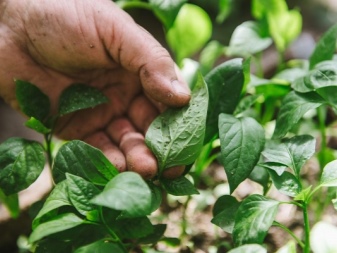
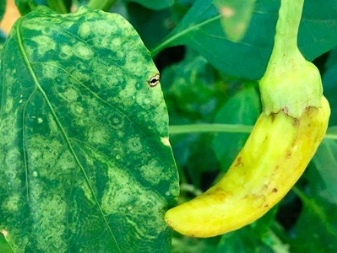
Black aphid is small, up to 0.3 mm, more often black, although there are other shades. Parasites live on the stem and the underside of the leaf. They suck out the juice with a special proboscis, it is able to bite through thick stems. After the puncture, the foliage begins to rot, the nutrition of the leaf is disrupted. The bush is able to quickly die. Black aphids settle on cabbage, tomatoes, roses. Pests leave eggs for the winter under leaves, tree bark. The female hatches the larvae for the first time in the spring, and the second time in June. With a long warm autumn, one more appearance of larvae is possible. Ants love the secretion of aphids, willingly protect these pests.
The main signs of aphid damage:
- yellowing, curling of leaves;
- inflorescences dry up;
- buds are not tied;
- the inflorescences that appear fall off;
- a shiny coating appears on the leaves;
- unusual activity of ants is visible.
On sweet bell peppers, the aphid colony grows very quickly. In a month, the number of pests can grow up to 100,000 individuals. This increases the risk of plant death and contamination of other crops.
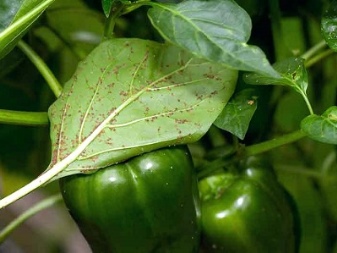
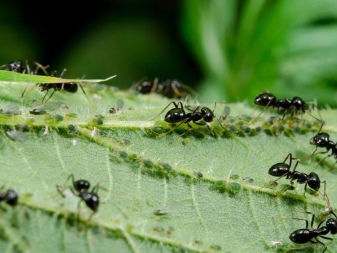
How to deal with chemicals?
For the destruction of parasites, there are chemical, biological and folk methods. The latest generation of chemicals are highly effective and safe for plants. They are able to destroy other pests at the same time, neutralize the larvae. Advantages of the chemical method for the destruction of aphids:
- for the complete destruction of harmful insects, it is enough to process the plants 1-2 times;
- the action of the drug begins immediately after treatment;
- preparation of the drug is simple, described in the instructions;
- 3 weeks after processing, the fruits are edible.
The chemicals can be used in the greenhouse.A special climate is formed there, which is favorable for the spread of aphids - high humidity, high temperature.
The following drugs are recognized as effective means.
- Karbofos. Powerful insecticide against parasites. The solution is prepared at the rate of 1 large spoonful of the drug per 10 liters of water. Application on seedlings allows you to destroy aphids, get a decent harvest of vegetables.
- "Fufanol" - a drug with a wide range of action, helps to remove aphids, ticks, fire flies, whiteflies, moths. It is necessary to treat the plants with the drug in dry weather. A solution is prepared according to the instructions - 5 ml (1 ampoule) for 1-2 liters of water.
- "Aktara" - a preparation for processing in the early stages of plant development. It is necessary to process the affected plants twice with a break of 7 days. The chemical is effective against many pests. After 30 minutes, the insects refuse to eat, and die every other day.
- "Intavir" - a remedy for numerous vegetable pests, produced in the form of tablets. They are dissolved in a bucket of water; peppers should be poured with this solution. The drug creates a film, poisonous for aphids, on the surface of the stems and leaves of bell peppers.
- "Commander" - an excellent tool to save plants from larvae and adults. It is used outdoors, since the main substance is not washed off with water, does not lose its activity in direct sunlight.
- "Spark" - a toxic agent, you need to dilute strictly according to the instructions. The drug can be used as a prophylaxis.
- "Tanrek" - a modern drug that can effectively remove aphids. Able to accumulate in the soil, to overcome the tissue barrier of plants.
- Copper sulfate - a product in the form of blue granules. From them you need to make a paste, mix with water, a pink solution of potassium permanganate. It is used to cultivate the soil around plants to prevent aphids from attacking.
Most of the chemicals do not pose a threat to humans and domestic animals, which can accidentally eat processed plants or fruits. But when treating with insecticides, you must be careful, use personal protective equipment. Active substances in contact with mucous membranes can cause chemical burns.
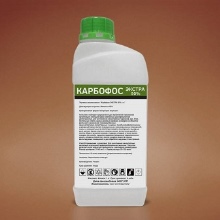
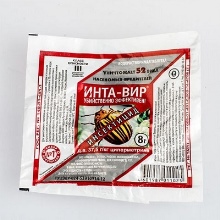
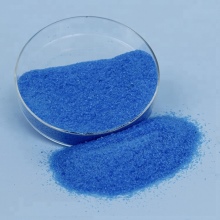
How to get rid of by biological methods?
These control methods involve the use of natural methods of pest control. These include:
- attracting birds and insects - natural enemies of aphids;
- using plants to kill or distract pests;
- manual collection of pests.
Birds and insects are able to clear the area of aphids in 7 days without damaging the seedlings. For this, it is necessary to create favorable conditions for such assistants. They feed on pests of tits, sparrows, linnet. For birds, you need to create feeders, drinkers, drive away cats. Do not forget about feathered helpers in winter. Often they do not fly away closer to a person's dwelling, but remain in their summer cottages. If possible, feed the birds in cold weather.
From insects, seven-spotted ladybugs, flower girls, wasps, lacewing, ground beetles, and some species of spiders feed on aphids. The seven-spotted ladybug larva exterminates 100 adult pests per day, up to 300 larvae. Ladybugs are easy to spot and can be brought to plants affected by aphids.
The rest of the beneficial insects can be attracted by planting herbs with a spicy aroma.

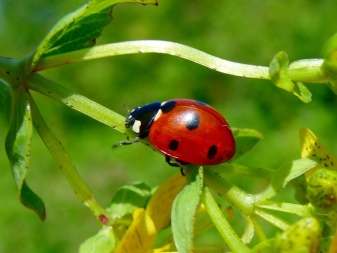
During the fight against aphids, it was noticed that some plants are capable of scaring off parasites. Unpleasant for aphids:
- dalmatian chamomile;
- onion;
- garlic;
- Dill;
- parsley;
- mint;
- coriander;
- nettle;
- yarrow;
- marigold;
- buckwheat;
- lavender.
These plants should be planted next to bell peppers. Such a neighborhood will serve as a reliable natural protection against pests. Pests do not like the aroma of carrot tops. You can make a solution from it and spray the seedlings. But there are plants that attract parasites - mallow, viburnum, begonia. These plants should be planted away from seedlings, then the aphids will switch to them.
Special preparations based on biological components have been developed and are being produced. The main active ingredients are herbal extracts. Such funds bring a positive result, are safe for human and plant health. New generation biological agents include Fitoverm, Boverin, Akarin.
Collecting aphids by hand is a time consuming but reliable process. It can be used on seedlings when the colony of parasites is not yet so numerous. It will be impossible to collect all pests, but such treatment will significantly reduce their number.
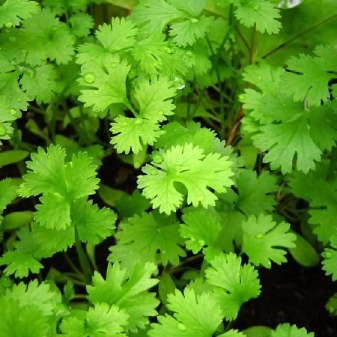
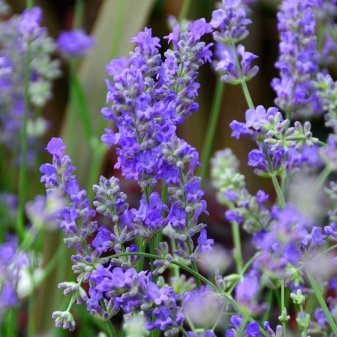
The best folk remedies
Many summer residents prefer to use folk methods for destroying pests. The funds are effective, help prevent the appearance of parasites. Making solutions at home is easy, all components are available commercially.
Ash
Wood ash is used as fertilizer. But if aphids start up, the ash will come in handy to fight the parasite. For processing, you need to prepare a solution that includes 1 glass of ash, 1 large spoonful of grated laundry soap, 1 liter of water. After thorough stirring, it is necessary to spray the diseased peppers with the agent. A mixture of wood ash with tobacco dust works well against pests. Each ingredient must be taken 50 g, mixed with two liters of water, do not insist, immediately process the plants.
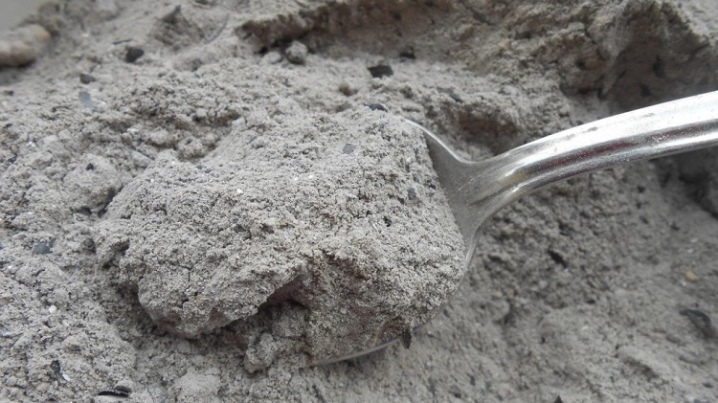
Soda
Green and black aphids are afraid of baking soda. In one liter of water, you need to grate 1 large spoonful of laundry soap, add 2 large tablespoons of baking soda. Spray seedlings and adult plants with this solution, wipe the leaves from the underside, the stems. The solution can be used for prophylaxis.
The soap will allow the product to stay on the leaves for a long time, even after watering and rains.
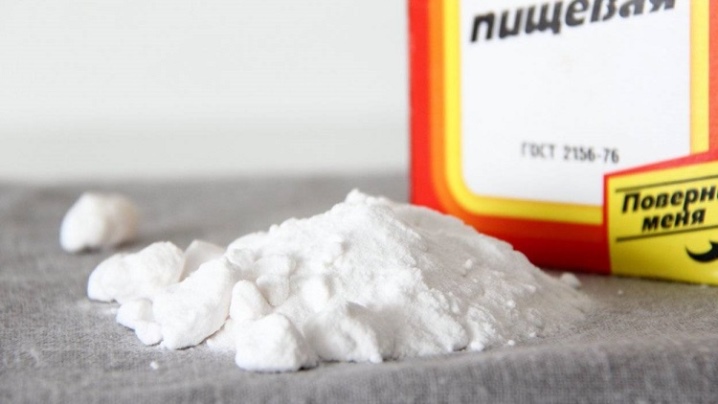
Soap
Effectively treat plants with a solution of laundry soap. In one liter of water, dissolve 5 g of soap, leave for 5 hours. Strain the solution and wipe off the affected leaves or spray. To enhance the positive result, you need to repeat the treatment up to 4 times. Tar soap allows you to quickly cure the pepper from parasites.
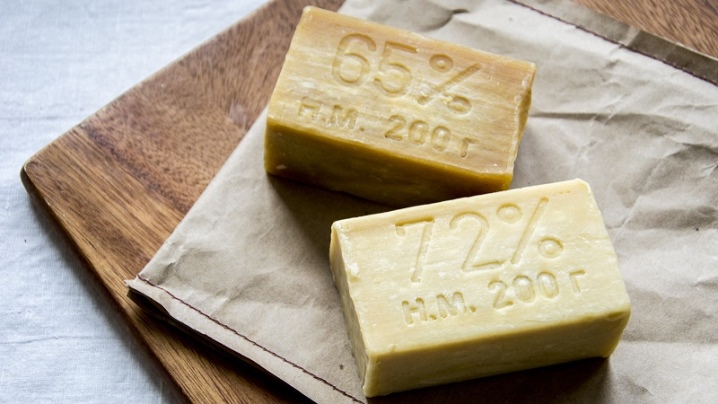
Spruce needles
In a closed room of the greenhouse, you can use an infusion of spruce needles, which is effective against aphids. It is not difficult to make it. Add 500 g of green needles to 2 liters of water, leave to infuse for 7 days in a shaded place. Before using in one liter of water, you need to dilute 40 g of the resulting infusion, process the peppers, you can sprinkle the eggplants if parasites have appeared there. Infusion of spruce needles is useful for young plants in the seedling stage, when they are still at home.
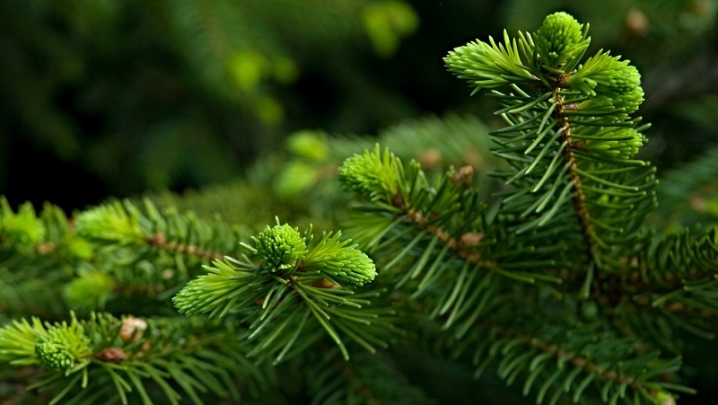
Onion and garlic
Infusions from these fragrant plants are good for getting rid of aphids. Their solutions and tinctures are very saturated and require mandatory dilution before use. Several effective recipes are known.
- Chop onion or garlic (300 g), add 50 g of grated laundry soap, dilute with water (10 l).
- Grind the onion or garlic (1 l) in a meat grinder, add vegetable oil (500 ml), leave for 24 hours. Use 100 g of the resulting infusion, diluted in 3 liters of water, add 30 ml of liquid soap. Shake the solution well before each use.
- Put crushed onion or garlic (1 liter) in a container with a volume of 2 liters, add water to the top. Close the container hermetically, put it in a dark place for 2 weeks. Dilute the solution before use so that it does not burn the leaves. 50 ml of tincture requires 10 liters of water.
Do not use products with garlic or onions during flowering and fruit setting.
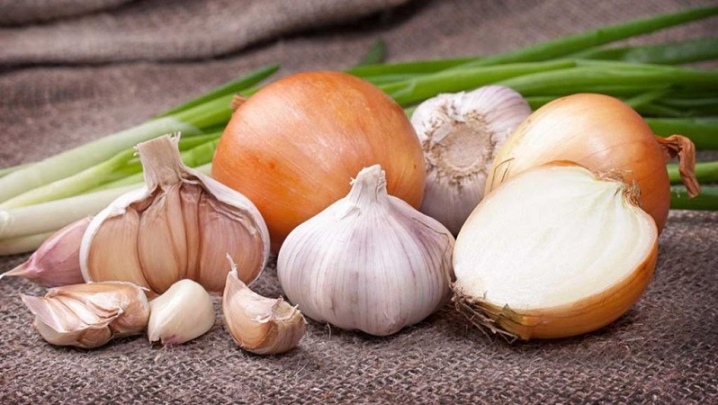
Ammonia
The drug has a negative effect on the respiratory system of parasites, causing paralysis. When it enters the digestive system, ammonia causes extensive burns, which leads to the destruction of pests. To make a solution, 2 large tablespoons of ammonia and 1 large spoonful of liquid soap are diluted in 10 liters of water. Use a spray solution to spray the infected peppers. It is not recommended to use such a solution on room seedlings, as it has a pungent, persistent odor.
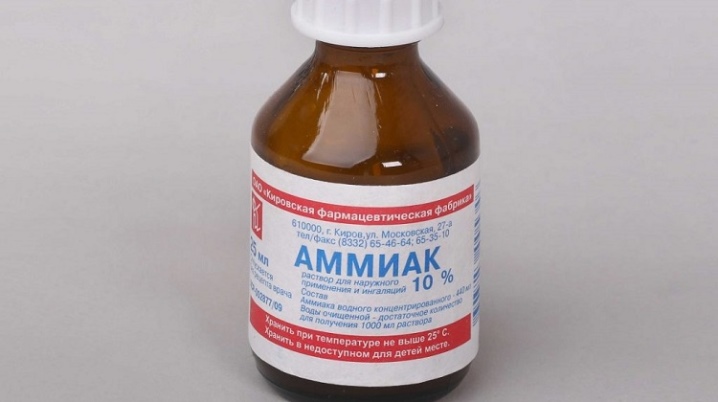
Laundry soap, shampoo, dishwashing detergent or liquid soap can be added to all solutions and infusions. These components help the active poisons stay on the leaves and stems for a long time.
Prophylaxis
Prevention is considered an effective method of controlling aphids, because it is difficult to notice small pests. The dispersal of parasites on the site can be detected only when their colony already has a large number. To destroy aphids will have to spend a lot of effort and resources. Basic preventive measures:
- conduct regular inspection of seedlings;
- attract birds to the site;
- weed the beds;
- process greenhouses and hotbeds with lime before planting seedlings;
- choose varieties of peppers that are resistant to pests;
- fumigate greenhouses with sulfur sticks before planting seedlings;
- plant "useful" plants next to the peppers;
- eliminate anthills on the site;
- disinfect the soil before planting plants;
- treat tools for the garden with bleach or soda solution;
- buy seedlings from trusted sellers, carefully examine them;
- harvest dry grass in autumn.
If aphids are found, the entire area must be treated. Pests will easily move to other plants or trees.
Aphids are one of the most dangerous pests. The main reasons for its appearance are considered errors in growing plants and the presence of garden ants on the site. Comprehensive measures to eradicate parasites can yield positive results. Modern drugs against pests are effective, simultaneously affect other parasites, and are safe for humans, plants and pets.
Folk methods are also capable of destroying aphids, they are more often used in areas.
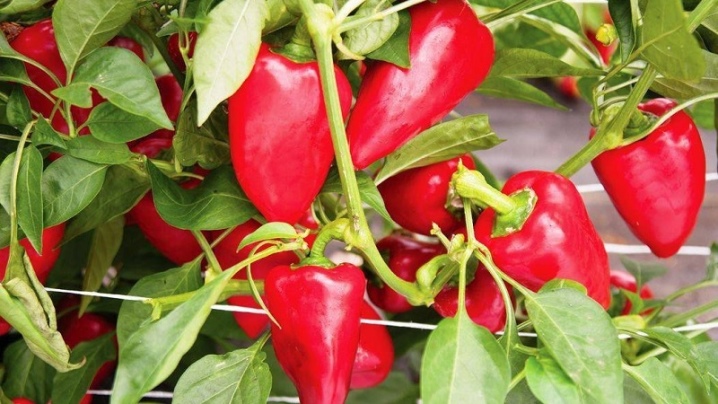













The comment was sent successfully.